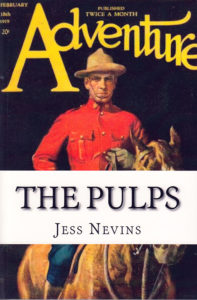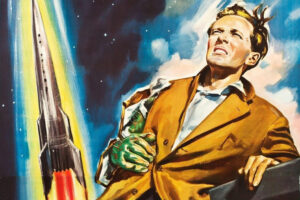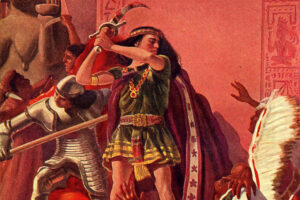 For those who don’t know him, Jess Nevins is probably one of the main pure researchers today in the world of pulp. And not just pulps in the U.S., but also overseas.
For those who don’t know him, Jess Nevins is probably one of the main pure researchers today in the world of pulp. And not just pulps in the U.S., but also overseas.
He has in the past maintained several websites that had information on a wide number of pulp characters. He has also put out several encyclopedic books on the topic, most out of print. He works as a research librarian, and so has access to information that most of us can only dream of.
Thankfully Nevins has shared much of that information. And his recent small book, The Pulps: A History, is but his latest.
While not flashy or the like, this small little tome provides a lot of data on the pulps that too many are either ignorant of or overlook. It seems that part of the reason for putting out this work is to correct all the misleading or inaccurate information out that. As an avocative historian in several areas, I can understand where he is coming from. I’ve tried as best I can in this blog to present as much accurate information as I can, usually hampered by what I have access to.
Available from Amazon for a very reasonable price, this 190-or-so-page book gives a general year-by-year assessment of the pulps, from 1896 to 1953. Each year (though the years 1896 to 1917 are a single chapter, as it covers a period when dime novels and pulps co-existed and pulps slowly took over) gives the number of titles and issues that year. We then get a breakdown by genre. This is important as many pulp fans (and I include myself) too often focus on just the genre(s) they are interested in, and overlook or ignore the rest. While I prefer pulp heroes, sf and fantasy, and few others, these genres were but a small part of the pulp magazines. I had always heard that the detective pulps were bigger, but we see that in many years the romance and even the westerns outsold them! There are ups and down in the genres. I was also surprised to see that some genres emerged later on. I never would have thought of “Mounties” as a genre.
Each year-chapter is rounded out by further information from that year. Major milestones that occurred. New publishers or lines that emerged, or ended. Notable works. though here the focus is on what magazines were published then the stories they contained (and other works cover that area better).
The work overall kicks off with a short history or overview of the pulps that runs about eight pages. And we get an appendix that looks at pulps in Nazi Germany and Soviet Russia.
Now, any negatives are more in the formatting than in the information. Page numbers are missing. More on foreign pulps overall would be nice (I have read articles by Nevins on this topic, so I know he knows a lot about them). There is no artwork. The layout is overall utilitarian. There are no sources given, nor an index. Be nice if someone could help him out in these areas.
But this is a valuable (and inexpensive) source of information for the pulp fan. I think any worthy of that name should read this. This will go on my shelf of references. And would be happy to replace it with an expanded second edition should it appear.




Your comments